The guide to morning dress: Part one, style
Morning dress is an area I’ve always found fascinating, but never have occasion to wear myself.
I do want to have some guidance on Permanent Style, however - so when Aleks Cvetkovic told me he was having morning dress made for the first time, I asked him to write us a series goes through the history, the style, the tailoring details and then his personal experience.
This is the first installment, looking at the history and style fundamentals.
By Aleks Cvetkovic
I don’t know about you, but even as a committed tailoring geek I find morning dress a minefield. When it’s done well, it conjures old world romance like nothing else. When it’s done badly, it can look unflattering and clumsy.
Having decided in this post-lockdown world to say 'yes’ to everything sociable, I’m off to Royal Ascot in June for the first time, which has given me the excuse to finally tackle morning dress in person. I’ve turned to Whitcomb & Shaftesbury, a much-loved bespoke tailor who’ll doubtless be familiar to readers. The house has become a firm favourite of mine over the past year or so.
When it came to thinking about what to do with a morning suit, though, I had to do my research. The history of morning dress is fascinating, and much of it has been lost to time – to be replaced with a daunting amount of misinformation. Over the course of researching this series, I’ve been presented with a good deal of contradictory advice from different tailors, pundits and experts, which goes to show just how esoteric the dress code now is.
To try and find some clarity, I turned to the man who is possibly the authority on morning dress today, classic menswear stylist and former Court outfitter, Chris Modoo. “Morning dress is formal daywear,” he says, “the Victorians and Edwardians treated it as the dress code to adhere to if you were dressing smartly before 6pm.”
Nevertheless, in its day (the latter half of the 19th century, into the early 20th), the morning coat was seen as subversively casual – racy, even. “Originally, the morning coat was a riding coat,” Modoo continues, “the cutaway tails and the buttons on the coat’s back are all equestrian features.” Originally, you could button the tails to the two buttons that sit in the small of the back, above the coat’s vents, to prevent your coat tails from whipping your legs (or the horse) when riding at speed.
Thanks to these sporty credentials, King George V reportedly disapproved of the morning coat, sticking firmly with the more formal frock coat, its older Victorian relation. His son, Edward VIII, upended the status quo by abolishing frock coats and instead installing morning coats as the preferred dress at Court when he ascended the throne in 1936.
This move more-or-less cemented the black morning coat and its pairing of grey striped trousers that we know today. The matching three-piece morning suit in either mid-grey or charcoal emerged around the same time, as a fashion-forward take on the style. “Morning dress made sense at a moment in time when the whole world was ‘dressing down’ and black tie was emerging as a favourite over white tie,” Modoo explains.
Of course, there are lots of must-dos when it comes to morning dress, and some points of contention too.
For example, a black morning coat with a waistcoat and trousers is seen as more formal than a grey three-piece morning suit. Peaked lapels are conventional, but you can opt for notch lapels on the coat should you choose. There are a few examples to be seen in old fashion plates that look surprisingly elegant – such as the one above.
If you go for a black coat, the lapels can be trimmed with silk braiding (as below on Prince Charles). Whitcomb & Shaftesbury are doing this on my own coat, so we’ll be able to show you how this looks up-close.
If you do go for black, your coat must be black, not midnight blue, cut in worsted feather-weave (the technical name for a very fine herringbone), and paired with a dress waistcoat. For court dress, funerals, memorials and civic dress (formal ceremonies at Livery Companies, for example), the waistcoat must also be black to match the coat and a grey morning suit is not permissible.
Elsewhere, at weddings or summer events like the races, a contrasting waistcoat in worsted or linen is de rigeur. Buff, dove grey and powder blue are the classic choices, but you can wear any colour you like, within reason. Cream worsted or pale yellow or dusty pink linen are also chic options. Prince William wears powder blue below.
The waistcoat can be either single or double-breasted, with or without lapels. If you want to make a splash, you could wear a pocket watch with an Albert chain (single or double) or white starched waistcoat slips, which button into the waistcoat and mirror the line of the lapels (seen above on Prince Charles also).
These are another delightful archaism, designed to emulate the early 19th century fashion of wearing two waistcoats in contrasting colours, one over the other.
There are fewer rules around trousers for morning dress than you might expect (see multiple options below). The dark grey striped trousers that probably spring to mind are called ‘cashmere stripes’, but no-one I’ve spoken to seems to know why (any tailors or readers out there, do reach out if you have the answer). “All clues lead to Kashmir,” says Modoo, who suggests that similar dark grey striped fabrics may originally have been woven and exported from India.
These are a safe place to start if you’ve not worn morning dress before, but you can also wear a black-and-white houndstooth, shepherd’s check, Prince of Wales check, windowpane or even chalkstripe trouser if you want to be more unusual. These are probably trousers to experiment with once you’ve got yourself a classic, 'non-showy' morning suit, though.
Whether you go flat-fronted or pleated is up to you, and despite the popular misconception that turn-ups are a ‘no-no’, Modoo reassures me that they are permissible for morning dress, and well suited morning dress worn to the races. A high-waisted cut to sit neatly beneath your waistcoat is to be encouraged. Do try and stomach wearing braces to keep that high waistline where it should be, too.
When it comes to the shirt and tie, things start to get really interesting. (I know, keep calm.)
I’m told that technically you should wear a starched detachable shirt collar with morning dress, even to the races, and especially if you’re wearing waistcoat slips. Even so, conventional collar-attached shirts are far more common (and let’s face it, more comfortable). I’ve yet to make up my mind as to what I’ll do come June, but I’ve got a starched collar tunic shirt on order, so we’ll have to see which way the wind blows.
When choosing your shirt, a pale-coloured shirt body with a white collar and double-cuffs is essential. Sky blue or baby pink are safe choices. If you’re struggling for inspiration, look to Prince Charles, who is perhaps the best exemplar for how to wear morning dress today. His Anderson & Sheppard morning suits always look immaculate, and over the years he’s modelled both handsome morning greys and black morning coats with cashmere stripe trousers.
According to Royal Ascot’s official dress code, your tie must feature a “discreet pattern", and morning dress aficionados will secure their tie with a pin – see Prince Charles or Prince Michael of Kent (above) for inspiration here. A complimentary pocket square and buttonhole flower make for elegant finishing touches, and your shoes must always be black.
Oxfords are traditional, loafers are to be avoided, but Modoo also recommends bulled black Chelsea boots as an alternative, suited to the races if not a formal wedding. “They work because like a morning coat, they have equestrian roots,” he says. If attending the races, Court or a civic ceremony, you must also wear a top hat. More on that (and other accessories) later on in this series.
A note on the most contentious issue: navy blue morning dress. This was introduced to Royal Ascot officially a couple of years ago, but it still divides opinion. Personally, I’d suggest sticking to black or grey and I suspect Simon will agree with me.
I quickly realised when I started to think about my own outfit for the races that morning dress isn’t about standing out. It’s about trusting in the dress code, appreciating all its little foibles, and getting the details right. For that reason, as you’ll see in the next instalment, I’ve played it relatively safe with my own-suit, in the hope that it’ll be a good reference point for other morning dress newbies.
Phew. That’s a whistle-stop guide to the technical specs out of the way. Here’s hoping it’s a practical guide for any fellow race-goers, or soon-to-be grooms out there. Next up, we’ll pay a visit to Whitcomb & Shaftesbury for a practical demonstration.
Till then,
A













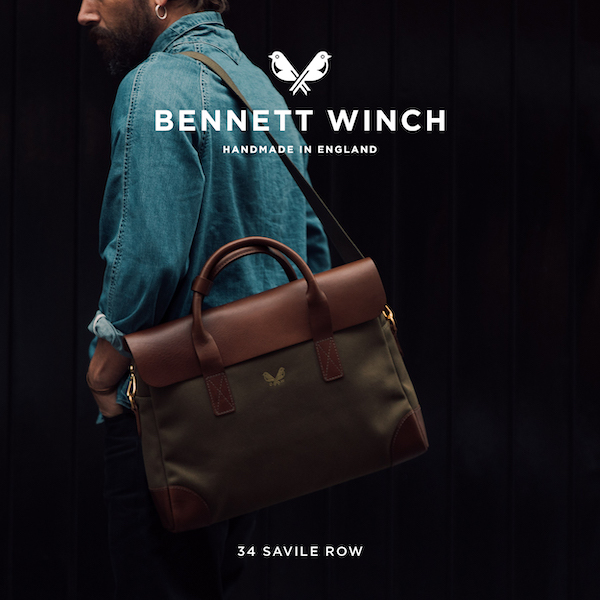







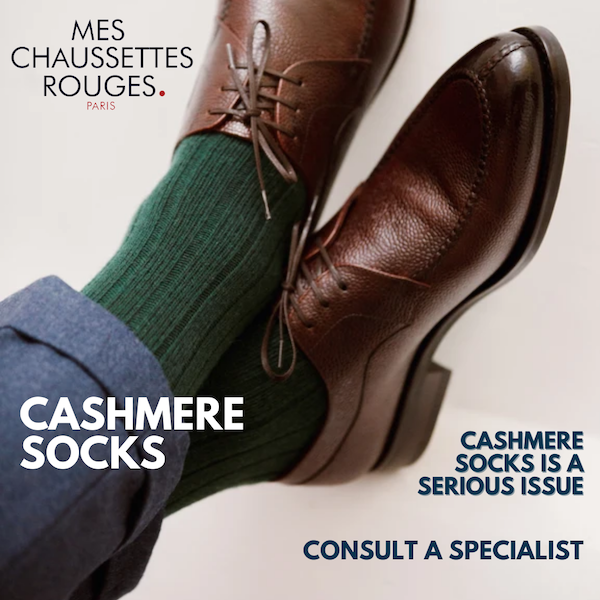








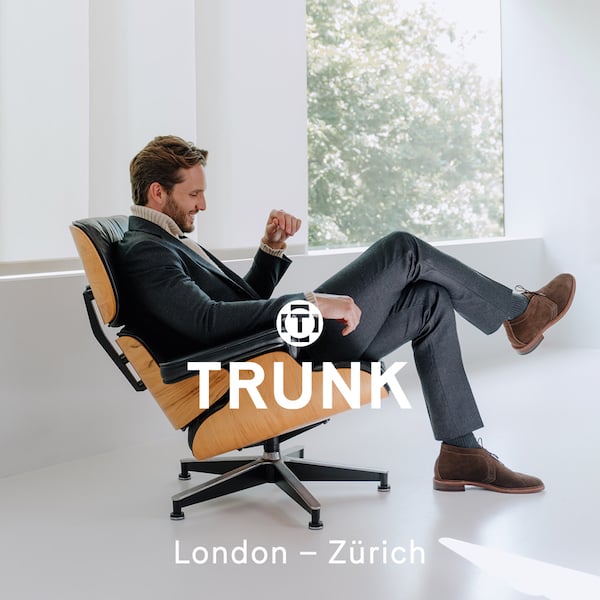

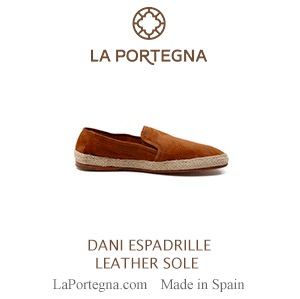
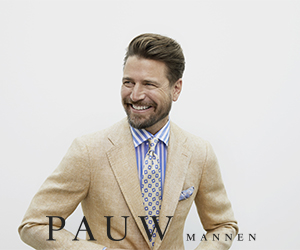

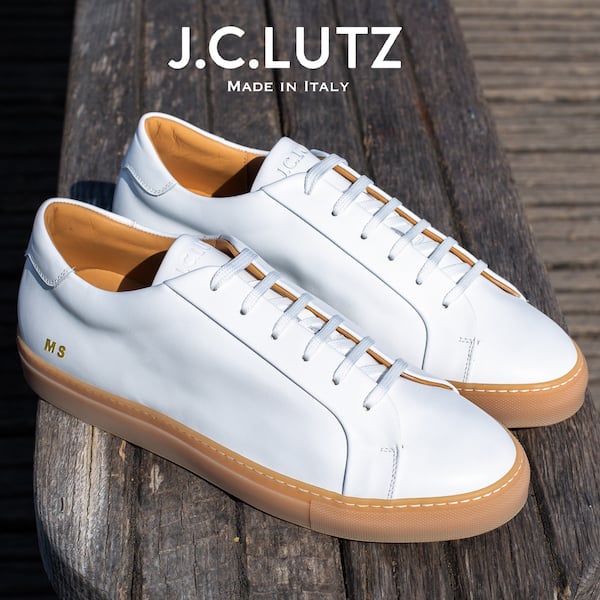

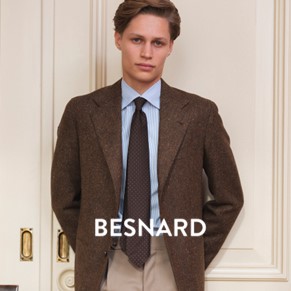
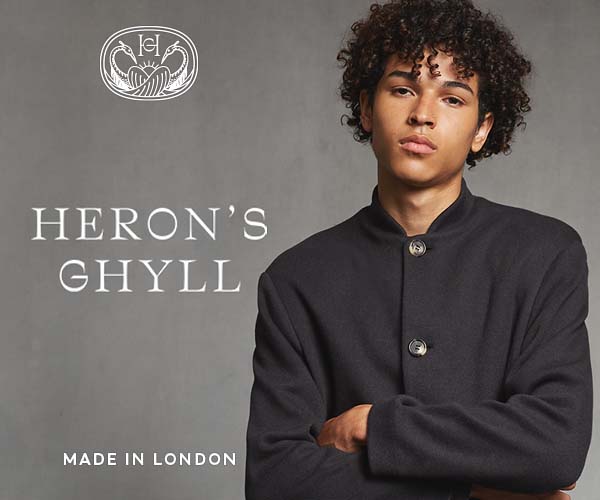


my two cents – your point about high rise trousers and correspondingly high cut waistcoat is totally vital. Even though most of us eschew such traditional proportions on regular suits these days, this is the one time you really do want your trouser waistband right up above your belly button. And the waistcoat super short too. Compare how elegant Charles looks in that pic next to the D of E versus many of the styles Will and Harry have gone for in recent years – the low hanging waistcoat to accommodate more modern lower waisted trousers is a real missed opportunity, in my opinion. Thanks for the enjoyable read and look forward to seeing how the suit turns out!
Completely agree Peter.
Totally agree. You see chaps at weddings with their trousers too low, and the shirt poking out under the waistcoat. Spoils the whole look.
And the bonus of course is a massive long fly – much more practical than the little short zips on trendy trousers!
Crikey, the men in the last drawing look as though they are on stilts. Artistic licence or what!
Nowadays we can do it with photos too.
Interesting. Unfortunately, there are barely any opportunities to wear a morning coat except for a groom to wear at his own wedding. A tailcoat is much more versatile as there are many white tie events.
This is to be worn at Ascot
My fault. I should probably have written „barely any events on the continent“. 🙂 By contrast, a good number of Viennese own a black tailcoat for the winter ball season where they are obligatory for some balls and common for others.
Hi Aleks/Simon, from photos of the notorious Windsors (thank you Voxsartoria) in Royal Ascot cosplay to Ralph Lauren advertisements, it’s hard to escape morning dress’ blaring association with the more unsavoury elements of a certain “ancien régime”.
Do you not think that’s mostly an outsiders/online impression? Hundreds of people attend Ascot and other events dressed like this with no such associations.
Perhaps exacerbated by the fact that so many good photos of things like this are of members of the royal family
Spot on Simon.
Point taken Simon. Perhaps the social and economic justice reform-minded who frequent Royal Ascot in morning dress need to be photographed more often.
A deeper problem is that amounts to a uniform with little aesthetic appeal. Black tie has something timelessly attractive about it. It’s a struggle to think of morning dress in that way.
Really? I love it for that reason to be honest – that sweep of jacket and waistcoat, plus the colour combinations. You find it nowhere else
The fashion plate depicting the younger gent checking his watch is admittedly elegant, although his sweeping jacket is also reminiscent of a mermaid’s tail. Perhaps light grey just isn’t my colour.
On the topic of quality photos of morning dress, here is a vintage shot of Ferdinand Marcos Jr (from the Times). I wonder who was his tailor?
Hi A,
An informative and enjoyable read. The pictures demonstrate that influencing isn’t really new, just the channels/platforms have evolved. Be interested to see how the process works out.
Best
Steve
Dear Aleks, Thanks for an interesting summary. I agree with most everything you say, however the correct footwear for morning suits is to wear Balmoral Boots. The last photo in the article corroborates that. Ideally just plain black.
Or spatterdashes.
Hi Jorge, you are quite right! I’ll make mention of Balmoral Boots when we discuss footwear in more detail in a later article. Thank you.
I think they are (all?) wearing spats, per Andy’s comment, with oxfords – not balmoral boots?
Or button boots.
Wonderful subject! Looking forward to the next instalment!
For the sartorially inclined, the challenge with morning dress, as with formal wear in general, is that one desires the best fit and cut but often ends up with a rental as the expense cannot be justified if worn once every year or less often. Are you planning to include a discussion of the best places to hire rather than buy? I hired my kit at Neal and Palmer in Piccadilly Arcade for the Queen’s Tea a few years back, and it was fine though flawed from the perspective of the style connoisseur.
We weren’t Christopher, but we can try to do so at some point. Thank you for the suggestion
Fair point. At my brother-in-law’s wedding some years back the dress code was morning dress. Didn’t like the idea at first precisely because of the paradox you describe: you cannot justify the expense, but neither do you want to feel uncomfortable in an ill-fitting rental. Eventually, a mix-and-match strategy worked well for me: borrowed a coat from a friend who is of similar build; waistcoat, pied-de-poule trousers and tie were made-to-measure/order for the male members of the bridal party (not great but good enough); shirt, tie and handkerchief were my own. No hats at a Dutch wedding. My take away was that so long as the coat and trousers fit well and are of decent quality, you can cut corners a little bit with the other items.
A very good idea, Christopher. I’ll do a bit of research, and see if I can weave this into an article down the line. Thanks.
When describing the shirt, this line was used, “When choosing your shirt, a pale-coloured shirt body with a white colour…”. I believe that should be “collar” not “colour”?
Is Alex’s starched collar tunic on order bespoke? Or did he find somewhere that will sell them ready-to-wear?
Morning dress is my favourite uniform to look at, but sadly I would have zero opportunity to wear it living in Canada. I am hoping one day to get the pieces for a stroller suit, as that would at least have a modern silhouette and I could get away with wearing it. I assume I can apply the lessons here to that. I’d appreciate a brief discussion of Stroller in one of the articles in this series if appropriate.
Thank you yes, I’ll correct that. Just to show it happens to us all – the first line of this comment originally said ‘describing the shit’! I’m assuming you didn’t mean that!
I’ll let Aleks reply on the nature of the shirt
Oh my! Yes. We’re all guilty of typos! Hopefully we’re all just helping each other out. 🙂
Hi Chancellor, I’ve ordered a ready-to-wear tunic shirt from Ede & Ravenscroft. Budd Shirtmakers also offer tunic shirts ready to wear. I went for E&R because the price-point was pretty good. They make a fair few different tunic shirts thanks to their long-standing role as a legal outfitter. I’ll endeavour to talk Stroller suits later on in the series!
Other than E&R, you can get tunic shirts from Stanley Ley of Chancery Lane, and Darcy Clothing of Lewes (the latter do probably the biggest range of starched and washable collars of all places).
I find the idea to commission a morning suit for one event rather absurd, especially if it’s something public like a horse race. Similarly, I think it’s rather tasteless to wear one as a groom if it’s not standard attire among the male guests as well.
In continental Europe, the only remaining occasion to wear morning dress is weddings among old money/noble families. If you really belong to this set, it certainly makes sense to have one. If not, even at these weddings there will always enough other people wearing regular suits, and if you’re otherwise a charming guest nobody will care. At funerals, of course, people will care even less. These aren’t costume parties, and there is little reason to spend substantial money on tribal wear if you’re not part of the tribe. I think this is a point Aleks misses quite often, tbh.
Otherwise, he mostly get’s it right, except people who don’t wear morning dress every second summer weekend should stay clear of extravagant choices like silk trimmings or waistcoats in very unusual patterns (and of course old-timey stuff like watch chains). These days it’s completely fine to wear dress shirts without a contrast collar (usually either white, solid light blue, or a bengal stripe), and I have seen elegant people wear all kind of black shoes from Oxfords to any kind of loafers, including bit loafers. In real life, I have never seen anyone wear a black jacket, but always some shade of grey. The default tie is either some micro pattern from Hermes or Ferragamo or – less stuffy – something solid like a grenadine.
Do (non-royal) people in the UK still wear top hats? Again, in continental Europe, they would seem rather silly, at least for anyone under the age of ca. 60.
Hey Felix,
Points well taken. I don’t think there was a suggestion this was to be worn at only one event though? It’s just being commissioned specifically for one to start with.
I’m with you on simpler shirts and ties, but really, a bit loafer is very out of keeping with something this formal, no matter how little concerned you are with traditions.
Ah well, might be a misunderstanding. Given that Aleks must be in his early thirties (?), I guess he would by now have noticed whether he has an actual social need for morning dress.
As for the shoes, I also wouldn’t wear bit loafers (but rather just something like a black Piccadilly) – but as I see another commentator has already suggested that the “correct” (eyeroll) shoes would be balmoral boots, I have to say I would much rather have a jolly guest in bit loafers than a “sartorialist” who uses the occasion to do early 20th century roleplay. The point I want to make is that morning dress is not a historical costume, but a very current party outfit, only that it’s very tribal. (I don’t belong to the tribe myself btw, just mingle with them from time to time).
Thanks Felix. Aleks is going to Ascot for the first time, which of course could then be something done every year. Not sure about the social side – I’ll leave him to reply to that if he wishes.
Agree on the boots, I’d only say that’s closer to a smart oxford than a bit loafer.
So much of this is so specific in use that it also feels, to me at least, like it can hardly be costume. If you’re wearing it at an event where it is appropriate, it makes sense to be at least broadly in keeping with tradition. It would only seem like costume if you wore it somewhere else.
Hi Felix,
Some interesting thoughts, here, thank you. I agree that half the challenge with morning dress is to wear it in a way that feels timely (or, as timely as tailcoats can be) without it looking and feeling like cosplay. Balmoral boots are a good example. For me, they are a step too far – but it’s all about personal preference, and a huge part of the fun of the races (or formal weddings) is in the act of dressing the part.
As for why I ordered the morning dress, you’re correct; I’m at a point in life where I’m expecting to wear it a few times a year for the next few years at least – both to the races and weddings we have on the horizon. The engagements have started coming thick and fast from friends over the past year or so.
I hope that answers your questions.
A
A top hat is required at Royal Ascot (in the royal enclosure). They won’t let you in if you’re not wearing one.
I had real difficulty putting on a tie with the starched collar on the shirt. There must be a technique I wasn’t aware of. I did think the overall starched collar look was maybe a bit much, though.
I think I agree Stephen, I suspect I’ll wimp out and wear a classic collar-attached shirt on the day…
Come on, you’re going to all the effort to have a morning coat made. You need to do the whole thing properly! Although a stiff collar is a nuisance to put on and uncomfortable.
I found that the best way with a tie and a starched collar was to set the tie in the collar before putting the collar on, and then tie the knot as close to the neck as absolutely possible.
Darcy make a large range of starched collars. https://www.darcyclothing.com/collections/mens-collars
A stiff collar does add a little je ne sais quoi.
Interesting series. I’ll await the rest. Nest stop… yacht club mess kit!
You need to do it a certain way, not like how you would do it with a normal shirt.
Beforehand, get a rod or stick and push through the holes of the collar to open them up, esp. the front ones. Attach the collar to the back stud. Tie the tie around your neck as usual, then loosen the loop. Insert the strap of the tie into the underfold of the collar on the right open end, with the knot as close to edge of the fold (you won’t be able to adjust the position of the knot once the collar is attached), then carefully slip the strap of the tie all the way round the collar’s underfold. Then attach the right end of the collar to the front stud. Pull the back end of the tie to shorten the length of the strap until it is almost done up, then attach the left end to the front stud and slip the end flap under the knot. Tighten the remaining part of the tie then adjust. If you done it correctly the knot should be positioned perfectly.
Takes practice but once you get the knack of it, it can be done quickly.
The cashmere stripes could have evolved from the “cassimere” cloths – a durable clear cut worsted twill popular in the 1800’s. The “fancy cassimeres” were sometimes woven in stripes. It sounds a more plausible origin.
Great intel, Alistair and I suspect you’ll be found to be correct there. Thanks for passing this info on!
Another of detail of the shirt is that the cuffs should be made up in the same fabric as the body rather than being contrasting white as the collar. See picture 2 of Prince Michael of Kent and Prince Charles. Looks a bit more refined to me than having both cuffs and collar in white as the typical “80s banker shirt”.
Very much agree!
Very enjoyable read! One question: if you get a black coat with lapels trimmed with silk braiding, is it still acceptable to wear a buff / light blue waistcoat? Or does the braiding make it inherently more formal?
Hi Gunther, thanks for reading! You can choose any colour waistcoat you like, silk braid or no silk braid!
Thanks, Aleks!
If commissioning a bespoke all-grey assemble, would it be appropriate to order a “regular” single breasted jacket in addition to the tails? You’d have to spend extra of course but will get a lot more wear out of the rest of the suit on slightly less formal occasions.
A perfectly fine article – but I live in a world where I can’t wear so much as a (Permanent Style) button-up shirt to work without people asking why I’m so dressed up – and I work in a very white collar industry!
I think the last vestige of morning dress in every day dress is formal overcoats. The length, silhouette, lapel line and overall impression aren’t exactly the same, but I think they at least rhyme. I think it comes through in the pictures and fashion plates showing a mix of overcoats and morning coats. These coats are fairly formal, but it’s a lot easier to wear one in everyday life without looking like you’re in costume.
Swap the morning coat for a black lounge jacket, and suddenly it’s the semi-formal black lounge suit/Stresseman/stroller suit! Not that there’s much reason to do so, but I like the fact if you really want both it’s pretty easy to do so.
Interesting comment regarding collar-attached shirts being more comfortable. The greatest comfort is to know you are properly dressed. Wear a starched collar.
My college graduation was one of the maybe 50 events in the U.S. that required tail coats for some participants, and the tradition is consistently described as “quirky” and “esoteric” when mentioned in the press. A three-piece ensemble with top hat outdoors in the summer: you couldn’t pay me to attend such a thing. How ambitious of the author to suggest some fun trousers after the purchase of a classic pair.
Fascinating article with lots to learn from. Very much liked the equestrian background story to the tails and buttons at the back.
I have a question for Simon or Aleks. Some wedding ceremonies in Japan are rather westernised and the groom wears a version of a morning suit (sometimes with glittery designs on the shoulders and across the back which is more akin to a matador…me neither) and carries a set of white gloves. One Japanese tailor told me that carrying gloves and wearing a pocket square was superfluous as one of the origins for wearing a pocket square was a gentleman took of his gloves and put them in his breast pocket: fingers out or in which led to the different ways people wear squares today.
I have always doubted the veracity of this story but could never confirm it one way or another-could you help?
Thanks.
In these photos, the royals almost always have their morning coats unbuttoned. It seems the the line of the coat below the buttoning point is one of the key attributes and maybe the thing that most distinguishes morning dress as the edges of the jacket sweep away below the button. Seems that leaving the coat unbuttoned, in this case, ruins the effect. The man in the foreground of the last photo looks much better than any of the princes. I would ask my tailor for maximum flexibility to accommodate future waistline expansion.
I wonder, why gray top hats used to be so popular at Royal Ascot for most of the 20th century, but are rarely seen now? Look up images of Royal Ascot from anywhere between the 1930’s and 1980’s and you’ll see a sea of gray. Nowadays, black hats are way more popular, including the super rare vintage silk ones. One explanation might be that in the past, silk hats were mostly reserved for evening occasions, to be worn with white tie. Since top hats are no longer worn with white tie (why and when this tradition disappeared in England is actually a topic for extensive research), people use daytime formal events as an opportunity to proudly display their precious vintage hats. Another question – would it be possible to start producing this type of silk again? It can’t be that modern technology and science can’t reproduce that silk.
Interesting that you, Aleks, who was tirelessly telling us on your podcast, that “the rules matter less and less” are now finding interest in a niche form of dressing that is very strictly governed by rules. Is that because of the sheer enjoyment of dressing up after those covid years? You also seemed sceptical about rules in your podcast with Mr. Modoo (which was enternaining) but not only then. I hope this comes across as the honest and curious question that it is and not as criticism of any kind. Cheers
Very interesting article.
Please, could someone explain me the purpose of the waistcoat slips ?
Its mentioned in the article – a reference apparently to people wearing two?
I wear morning dress a handful of times a year and am pretty comfortable with its various eccentricities. But the idea of a fashion for wearing multiple waistcoats on top of each other just highlights how ludicrous the whole thing is.
The double vest thing is a hangover from the Regency period.
I’ve enjoyed wearing tartan waistcoats with Morning Dress before. And I’ve seen others looking very dapper in Tartan trews.
BTW, I personally detest the white collar/coloured shirt look. It did of course start as a way of men getting their shirts recollared and saving the cost of a whole new shirt. Toffs always like to pretend that they’re thrifty!
Yes, weddings in Scotland often have morning coat with trews. I have worn it myself. I wouldn’t advise it outside Scotland though.
Very nice read, Aleks and Simon.
My view has always been that a morning suit / morning dress is a nice bridesgroom wear particular where there is cultural Anglo influence. Of course it may be too much to ask it of guests, but the groom and his best man or closest family or groomsmen, yes, a nice way to distinguish and elevate them on the special day.
Which reminds me of a recent terribly regrettable trend of grooms wearing navy or dark blue suits with tan shoes. What’s up with that?!
Yes, unfortunately that rather highlights the lack of education around smart clothing. Even if you like the look, it’s way too showy for something important like a wedding
True
A long time over due! When done well, morning dress is in my opinion the most elegant, fun and escapist of sartorial niches. It’s a pity that more people don’t get the opportunity to try it, owing at least partly to its ‘tribal’ associations. I look forward to reading more from this series.
What an incredible article, can’t wait for the next part! As a Croatian I can’t help but notice that Alex’s surname sounds like it comes from The Balkans?
Here’s my take: Morning Dress is actually quite versatile and much less rigorous then white tie…
Earlier this year I set out on a journey to make myself a bespoke morning dress without leaving Croatia! Last year trough google searching custom tailors in Zagreb that specialised in cutting tailcoats I discovered one run by a 70+ year old tailor who runs a small family business with his son who is a tailor as well. They created me a custom evening tailcoat that I was very satisfied with and if I told you the price you wouldn’t believe it! So naturally I was going to task him with the creation of my morning dress ensemble. The biggest problem here was that all of the fabric had to be sourced from outside of Croatia as Formal wear hasn’t really even been a thing in the Balkans. (I found an archive photo from a wedding that took place in 1932 in my town where the groom who I believe was a merchant wore traditional morning dress (with the detachable collar and silk ascot))
Like with everything I do I spent about a month researching Morning dress in detail until I finally had everything planned out and the only thing left for me was to source it!
As previously mentioned I sourced all the fabric from the United Kingdom (except the dove grey fabric for the waistcoat). The tailcoat fabric was black feather weave and woven by the world famous Dormeuil mill, the trouser fabric was a traditional cashmere stripe woven by Harrison’s. For the dress shirt, cufflinks and tie pin I opted out for a luxury Croatian shirt and tie maker “Croata”. The shirt was made to measure and had my initials embroidered on the French cuff. The shirt itself was a contrasting collar shirt (light blue and white) also called a Winchester shirt. The waistcoat was double breasted with shawl lapels and I opted for white slips. Of course the trousers had to be high rise and were worn with suspenders. (I opted for pleated trousers) The tailcoat itself had peaked lapels and single linked button closure which is traditional. My tailor also added handmade pick stitching along the tailcoat which was a really nice detail. Finally for the shoes I opted for classic black Oxfords and grey striped socks.
In conclusion it is very important that the cut of the entire suit isn’t too modern, a low waist would ruin the entire look. I also added a cornflower buttoniere and a classic linen pocket square to complete the look. I recently wore my morning dress to my cousin’s confirmation. It certainly isn’t something I wear every day but I’m very happy to be one of a handful of Croatian people who have worn Morning dress outside of a diplomatic event. Attached is a picture of me wearing the described outfit. If either Aleks or Simon have any comments on the look I’d very much appreciate any feedback!
It looks very authentic. You’ll blend in rather well at Royal Ascot.
This looks excellent Matej. Much smarter than most of the morning dress you see in Britain.
Hi Matej, the morning dress looks very nice. I am from Vienna and have been struggling to find an affordable yet non-standard morning dress myself. Any chance I might connect with your tailor? I would not mind the travel to Croatia back and forth to have a decent morning dress such as yours.
Thanks,
Stephan
Thank you for this interesting article.
I myself recently went through this process because I serve as an usher at Saint Thomas Fifth Avenue in NYC, & the uniform is morning dress during the season (approx. Sept – June, depending on the liturgical calendar). It’s (1) long coats (morning coat/cutaway/tight) for important days & (2) short coats (black-lounge/stroller/Stresemann) for regular days. I looked through most of the same photo & illustration databases, & for the long coat, I settled on what the PoW wears for funerals (pictured above), & for the short coat, I used a photo of Anthony Eden (3-button, peak lapel) over the SB rigs of WSC/Captain Peacock/Mr. Banks. Waistcoat is the same for both – DB w/slips. Sadly, the options for the striped trousers were few compared to the variety in the illustrations. I combed the available bunches & chose the heavier cloths in the back Harrison’s P&B Universal bunch. Since the coats & waistcoat were going to be same cloth (black, small herringbone), I did not have to dwell over the odd waistcoat choices. Edwin & Matthew at Steed executed all of this perfectly, & I’m grateful to them for meeting tight timelines & indulging my obsessing. Yes, the long coat has the quilting, the braiding, & the double fastening button, but not the pockets in the tails that I’ve seen on some vintage models IRL. The trousers are button-fly, high-waisted fishtails w/o back pockets. Interestingly, the PoW’s long coat does not have all the detailing on its upper back.
For shirts, I went with the Cameron collar from Luke Eyers, & the tunics from the usual suspects on Jermyn St./the arcades/Chancery Lane, for now. The quality & variety vary. The challenge with this collar-tunic combo for me is getting the tie centered into the slot without the whole thing coming apart.
I’m still sourcing the double-Albert watch chain & am leaning towards the “paperclip” style worn by WSC. Owning a Breguet “turnip” will take more time & resources.
The hat will be a Homburg from Optimo when I get around to seeing them next & a top hat for Easter Sunday & the attendant parade on Fifth Avenue when it’s easier to blend into the crowd.
Can’t wait to see Part 2, & the choices you made.
Wonderful, thank you Eric. I didn’t even realise there was that use of this type of dress in the US. Fascinating
One of the things I like about morning dress is that it’s so much more individual than formal evening dress. There’s a basic starting point of a tailcoat, but beyond that there’s a real variety of waistcoats, trousers and ties. There is the absolutely correct buff or grey waistcoat, cashmere stripe trousers, stiff collar and a wedding tie. Or you can get much flamboyant. Pink waistcoats, trews and so on. Or even a cravat!
Nice point David, I hadn’t thought about that. Do you find people often go too far, given there is that freedom?
Very interesting piece. Look forward to the second episode. Pictures show once again how far above everyone else Prince Charles always is. Watching him next to D o E, his usual small tie knot looks even smaller. Do we know where the use of two waistcoasts one over the other come from?
Is any collar (except button down) shirt acceptable, eg. a tab collar shirt.
Royal looks. i love this blog
Just read a US news post describing Royals leaving Service of Thanksgiving. “Prince Harry wore a long sports coat and gray slacks” Seriously? Where are the grey haired editors to educate the millennials? Thank goodness for PS. Hard to fathom how far we have fallen.
Oh dear, oh dear.
It was actually nice at that event seeing people in morning dress, and not dissimilar to what Aleks is having made – next post on that on Monday
Hi there – i’ve got my grandfather’s ruby-studded gold frog tie pin. I’d love to wear it at a wedding (morning dress) I have coming up.
I’d love advice on what tie to pair it with…I also plan on wearing a light blue waistcoat. Help appreciated!